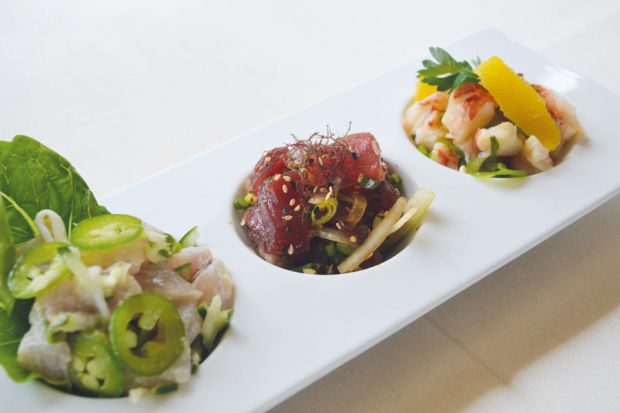PUHI — Some people on Kauai are taking a break to make sure salmonella-contaminated seaweed from a farm on Oahu is out of circulation before picking up their poke. “But it’s not going to be forever,” said Kauai resident Devin
PUHI — Some people on Kauai are taking a break to make sure salmonella-contaminated seaweed from a farm on Oahu is out of circulation before picking up their poke.
“But it’s not going to be forever,” said Kauai resident Devin Caspillo. “It’ll be OK soon and I’ll eat it again.”
Valeria Hernandez, who eats poke multiple times a week, said she’s not as worried and might take a day or two off from her poke habit, but she’ll be back.
“It’s my favorite. I work at a restaurant and I eat it all the time,” Hernandez said. “If it’s under control now, I’m not too worried.”
The Hawaii Department of Health began investigating salmonella cases on Oahu in early November, and is responding to 15 cases, including both children and adults.
All of the cases developed diarrheal illness from mid- to late-October and four cases have required hospitalization, according to DOH.
A source has not been confirmed, but preliminary investigations are pointing to consuming raw fish, particularly poke, contaminated limu, also known as ogo or seaweed.
The tainted limu has been linked to a seaweed farm on Oahu, which has been ordered by DOH to halt operations. Customers have been advised to pull product from their shelves immediately.
The product was shipped to Kauai, Maui and the Big Island, according to DOH’s food safety program.
“To protect the public’s health, the department stepped in to make sure this product is no longer being put on the market pending further investigation,” said state epidemiologist, Sarah Park. “At the same time, we want the public to be aware of the situation so they may seek medical care if needed.”
Salmonella is a bacteria that may cause diarrhea, abdominal pain, fever, nausea and vomiting. Symptoms typically begin within 12 to 72 hours after exposure to the bacteria, according to DOH.
There isn’t a vaccination to prevent catching salmonella and it can be more serious for those with weakened immune systems, for children and for the elderly.
Contracting the infection can be prevented by thoroughly cooking food to an internal temperature of 165 degrees, by washing hands and by washing preparation and cooking surfaces.
“If someone is in possession of limu/ogo and they are not certain where it came from, it is recommended that they either avoid eating it, or that they adequately cook it,” said Jonathan Hilts, with the disease outbreak control division of DOH.
For anyone who has consumed limu/ogo and develop the symptoms of salmonella infection, DOH recommends a visit to a healthcare provider.




